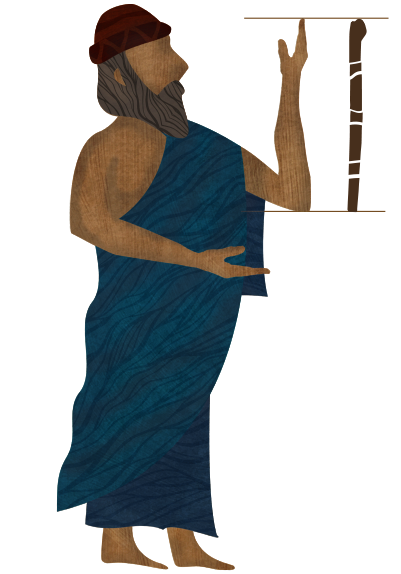How Big Was Noah’s Ark Really?
by Ark Encounter on November 16, 2023God told Noah to make his ark 300 cubits long, 50 cubits wide, and 30 cubits tall. However, we cannot be certain which cubit Noah used.

What Is a Cubit?
A cubit is a common measurement used by a number of ancient cultures. The cubit is equal to the distance between a person’s elbow and the tip of their longest finger.

How Long Is a Cubit?
Modern units of distance, such as the meter or foot, are standardized. However, in ancient times, cubit lengths were not consistent across cultures. Consequently, a variety of cubit lengths were used. The normal cubit mentioned in the Bible is estimated to have been between 17.5 inches and 18 inches.
Here are some samples from Egypt, Babylon, and ancient Israel:
| Hebrew | 17.5 in |
| Egyptian | 17.6 in |
| Babylonian Long | 19.8 in |
| Hebrew Long | approx. 20.4 in |
| Egyptian Long | 20.6 in |

What Is a Royal Cubit?
Many ancient construction projects were built using a royal cubit, which adds the width of four fingers (approximately 3 inches) to the standard cubit.
Which Cubit Did We Use?
The Ark Encounter decided to use a royal cubit since major construction projects in the ancient world were often based on them. Beginning with one of the shortest common cubits of 17.5 inches, we added a handbreadth of 2.9 inches, yielding a royal cubit length of 20.4 inches.
Most royal cubits in ancient times measured between 20.4 inches and 21.6 inches, placing our cubit on the short end of the spectrum.
Adding Up
Based on a 20.4-inch cubit, our life-size Noah’s Ark measures 510 feet long, 85 feet wide, and 51 feet tall. The Ark’s volume is approximately 1.88 million cubic feet, large enough to contain nearly 450 semi-truck trailers.
Start planning your trip to the Ark Encounter today, and see just how big Noah’s ark may have been for yourself!